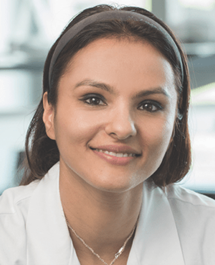
“One of the biggest things I hope for in my career is that in 20 years, I still feel the same joy and enthusiasm for research and training that I feel now,” says Prabodhika Mallikaratchy, Ph.D., a professor in the department of molecular, cellular, and biomedical sciences at the City University of New York (CUNY) School of Medicine. Dr. Mallikaratchy talks with us about her career path, research on developing new immunotherapies and molecular tools using nucleic acids, and her belief in the importance of being passionate about your career.
Q: How did you first become interested in science?
A: Growing up in Sri Lanka, I was always a curious child. I remember being drawn to science and math, but there was no particular incident that sparked my interest. By the time I reached high school, though, I had become especially interested in chemistry.
Q: What was your path to becoming a researcher?
A: I earned my bachelor’s degree at a private institution in Sri Lanka dedicated to chemistry. During my first year there, I asked several laboratories if I could volunteer as a student researcher. After many rejections, I was finally accepted to work in an inorganic chemistry lab. The work I did there was my first experience in scientific exploration and writing, and it became the basis of my undergraduate thesis.
From there, I wanted to explore graduate schools outside of Sri Lanka, but jumping directly to a Ph.D. program would’ve been difficult because of problems with my credits being recognized internationally. So I entered a master’s degree program at the University of Louisiana at Monroe focusing on organometallic chemistry.
I finished my master’s degree and was accepted to a chemistry Ph.D. program at the University of Florida (UF). I participated in UF’s summer internship program that helps students become familiar with labs on campus and was introduced to the lab I would ultimately choose for my thesis work. The lab studied DNA aptamers, which are short, single-stranded molecules that can fold into specific shapes that allow them to bind to proteins or other molecules. I decided to study DNA aptamers for their potential as molecular tools that can bind to receptors on the surface of a cell and cause a response within it.
Through my Ph.D. work, I learned about the basic development of a DNA aptamer in the chemistry lab, but I wanted more experience in preclinical testing of potential medicines. To gain that experience, I joined the lab of Dr. David Scheinberg at Memorial Sloan Kettering Cancer Center in New York City as a postdoctoral researcher. My time there included learning how to design molecules and test them in research organisms as well as gaining an understanding of the complexities associated with developing targeted therapies. My postdoctoral training shaped how I approach the development of molecular tools and therapeutics.
After that, it was time to start my own lab. In 2012, CUNY recruited me to Lehman College in the chemistry department; and then in 2022, I moved to CUNY School of Medicine as a full professor.
Q: What does your lab study?
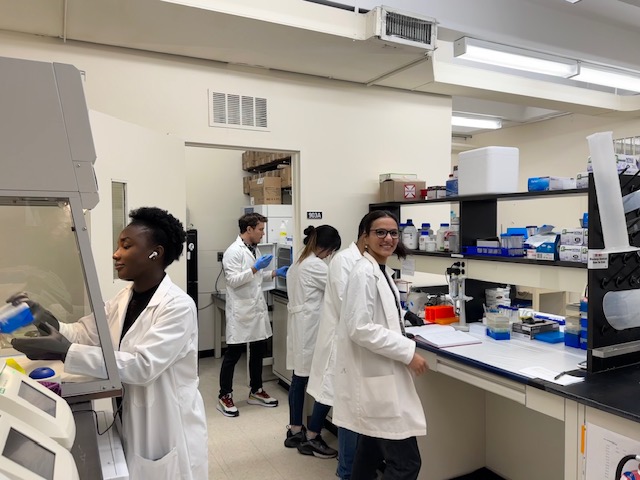
A: We focus on creating DNA-aptamer-based immunotherapies and molecular tools. These molecules are bi-specific, meaning that they are made up of two aptamers—each designed to bind to a different protein on cells’ surfaces—connected to one another through a linker. We can engage a protein on an immune cell with the first aptamer and a protein on a diseased cell with the second. This connection drags the cells closer together and forces the immune cell to kill the diseased one. In this way, bispecific DNA aptamers mimic antibodies, which also bind to immune and diseased cells at the same time.
Developing a DNA-aptamer-based immunotherapy involves several challenges, including choosing the best proteins to target on the surfaces of cells and designing aptamers that bind to them. For a long time, we didn’t have a good method for testing large aptamer libraries against known cell surface proteins in their native state. Existing methods required that we isolate the proteins from all other cellular components, such as membranes, but this isolation caused the protein to fold into a different 3D shape; aptamers that bound to the isolated protein wouldn’t bind the protein in its normal state. To overcome this issue, I came up with a new method called ligand-guided selection, which allows us to test our aptamer libraries against intact cells.
Right now, my lab is working on an aptamer-based immunotherapeutic. We’re currently identifying the best proteins to target on the surface of cancer cells and selecting aptamers against them. Then, we’ll design a bispecific molecule using those aptamers and test its therapeutic potential to treat cancer.
Q: What challenges did you face on your career path?
A: The lack of women—especially from underrepresented countries—who could act as role models was a challenge for me. As an international student coming from one of these underrepresented countries, it was very difficult to navigate the cultural aspects of living and working in the United States. Even now, I sometimes have networking or communication trouble that colleagues who grew up in a Western country don’t. The opportunity to interact with more international role models would have made this transition easier for me.
Q: How has NIGMS supported or influenced your career?
A: I can confidently say that if it wasn’t for the NIGMS Support of Competitive Research (SCORE) program, my research and my lab wouldn’t have taken off. I applied for a SCORE grant even before I joined the faculty at Lehman College, and NIGMS funded it within my first year. It gave me the financial boost I needed to establish a lab, hire people, and start getting work done. I don’t know where I would be without it.
Q: What advice would you give students who are interested in a career in science?
A: You have to be passionate about what you’re doing because you will fail—a lot. From those failures comes learning, and from learning comes discovery and innovation. But if you don’t have that passion, if you’re not truly excited by the work, you won’t have the persistence to fight through the failures. And above all, you won’t be happy.
Dr. Mallikaratchy’s research is supported by the NIGMS Maximizing Investigators’ Research Award program through grant R35GM139336.


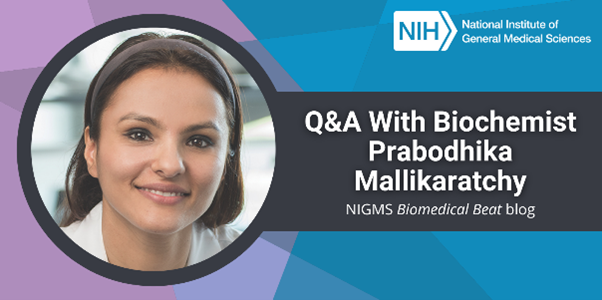
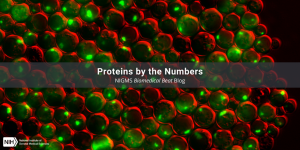

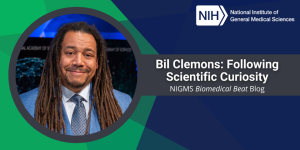


thank you very much for sharing your path to research and advising us.